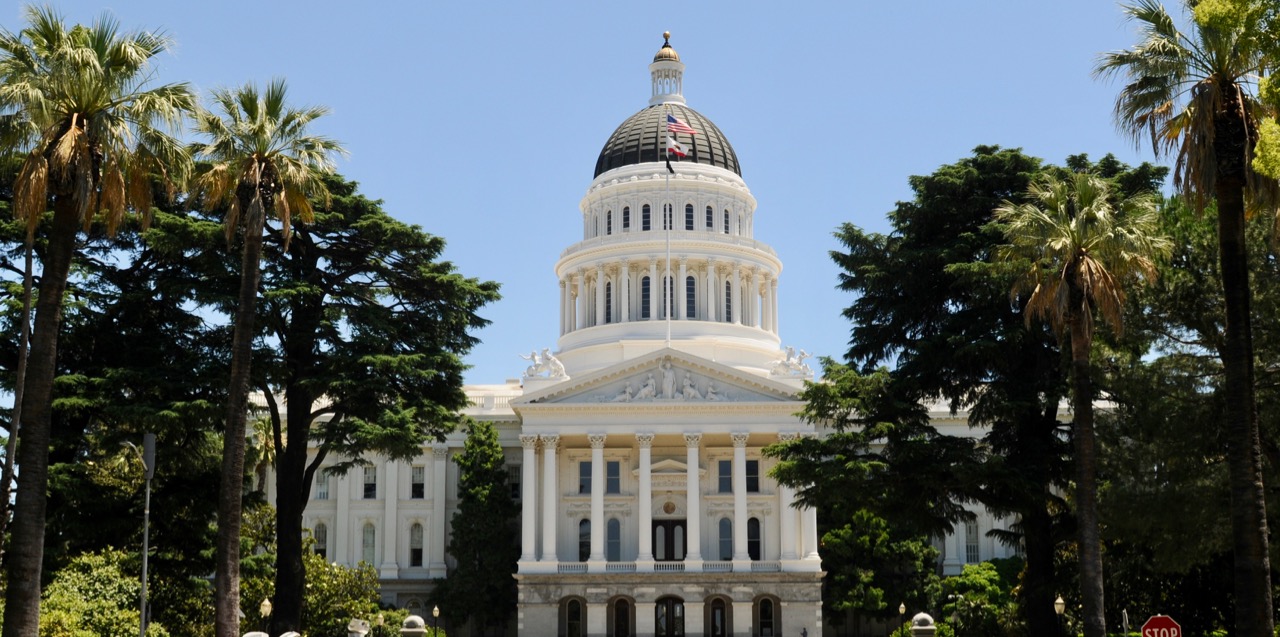
Prison Cell Bars. (Photo: Dan Henson/Shuttertock)
Prop. 6 – Ban On ‘Forced Prison Labor’ Fails
Failure of Prop. 6 caps off year where nearly all reparations efforts in California failed to become law
By Evan Symon, November 11, 2024 2:05 pm
Proposition 6, a proposed Constitutional amendment that would have halted involuntary servitude as punishment for a crime, was officially called on Sunday, failing to move forward.
The proposition was brought together earlier this year by lawmakers and advocates pushing for more reparations for African Americans in the state. In addition to Prop. 6, this included 14 reparations bills. As voter approval is needed for state Constitutional changes, not everything they wanted to push forward this year could go through lawmakers in Sacramento. This included stopping forced prison labor.
According to Proposition 6, passage of the proposition would have meant amending the state constitution to prohibit slavery and involuntary servitude as punishment for a crim. In additional, it would also have authorized the Department of Corrections and Rehabilitation to award credits to incarcerated persons who voluntarily participate in work assignments. Going into the 2024 elections, California was just one of eight states with constitutions that allowed involuntary servitude, but not slavery, as a criminal punishment. In addition to California, these included Georgia, Iowa, Kansas, Louisiana, Michigan, North Carolina, and Ohio. Eight other states currently allow involuntary servitude or slavery as criminal punishment, including neighboring Nevada.
Black caucus lawmakers fought furiously for Prop. 6, as well as the 14 bills, to pass. This included Senator Steve Bradford (D-Gardena) and Assemblywoman Lori Wilson (D-Suisun City). Wilson specifically noted earlier this year that “Involuntary servitude is an extension of slavery. There’s no room for slavery in our constitution, which should reflect our values in 2023. ACA 8 prioritizes rehabilitation for incarcerated people. Incarcerated people should be able to choose jobs and shifts that allow them to continue their education, use the law library, get counseling, and participate in other rehabilitative programs that facilitate growth and transformation.”
However, opponents quickly rallied against it. In addition to many not wanting to give more favorable conditions for prisoners, many groups found that prisoners would be likely paid a lot more for work performed in prison. The Howard Jarvis Taxpayers Association led the financial cost charge, saying that “Proposition 6 bans mandatory work requirements for state prison inmates. It doesn’t seem fair to further increase the burden on taxpayers by creating the conditions to negotiate higher wages for inmates who are paying off their debt to society by serving their sentences in state prison.”
Despite an early strong push, pro-reparations sentiment quickly turned sour, as the high costs of passing most of the bills became apparent. While a few were ultimately signed into law, most notably a bill asking for a formal apology for slavery by the state, most of the 14 bills failed to make it this year. These included very expensive bills that would have created an entire department for reparations efforts, as well as fund them. Governor Gavin Newsom vetoed an eminent domain reparations bill because there was no funding for it thanks to the other bills failing.
With reparations becoming less popular, and a huge public safety push in California by voters wanting to bring back tougher on crime laws and punishments, such as Proposition 36, which aimed to make multiple changes to California drug and theft laws and bolster them in the process, Prop 6 wasn’t looking good. Polls showed that, while it would be close, Prop 6 would likely still fail. In the days following election night, Prop 6 had yet to be called. But with Prop 36 passing with over 70% of the vote, it looked likely that that support would carry over.
Prop 6 fails
This ultimately came to fruition on Sunday when the latest results were posted. With 72% of the statewide vote in, the No votes were soundly ahead, with 6,233,020 votes against Prop 6 and 5,351,965 for it. In percentages, that came to 53.8% to 46.2%.
In a statement, Assemblywoman Wilson said that “While it’s disappointing that our measure to remove slavery from California’s constitution was not approved by the voters, this setback does not end the fight. Together, we will continue pushing forward to ensure that our state’s constitution reflects the values of equality and freedom that all Californians deserve.”
However, opponents celebrated the defeat of Prop 6, saying that it capped off a year of Californians soundly rejecting nearly all of the reparation measures that advocates tried to pass. While many lawmakers vowed to bring back many of the bills next year, as well as bring up some new ones, the defeat of Prop 6 would likely help limit just how much they would want done.
“A lot of people were shocked that California, by and large, rejected most of what reparations advocates wanted done,” said Katherine Douglas, a Washington-based analyst who focuses on state reparation efforts, to the Globe on Monday. “Slavery and reparations just doesn’t resonate with many voters, and the huge price tags scare many away.
“The few things they did manage to push through are all low to no cost, and those are always more likely to go on. But with state budget issues in California, the state being tens of billions in the red, these kinds of costs make little sense. Plus, as you mentioned, people in the state are sick and tired of crime and all these softer on crime laws and everything taking place. They took a stand this November, even in places that normally vote more liberal. Prop 6 looked to many like it wanted to give prisoners more money for work, and make it less of a punishment and more of a job. Voters really didn’t want that and saw beyond the wording advocates tried to use.
“I agree that this isn’t the end of reparations attempts in California by a long shot. But it should be very telling that the vast majority of things they tried to get through this year failed. It will likely not bode well in the years to come.”
- Bill to Require Law Enforcement Disclosure if AI Was Used To Help Write Reports - August 7, 2025
- Gov. Newsom Files FOIA Request To ‘Expose True Cost’ Of L.A. Federal Troop Deployment for Anti-ICE Riots - August 6, 2025
- California Redistricting: How Newsom’s Plan Will Demolish Hard Fought GOP Gains - August 6, 2025




